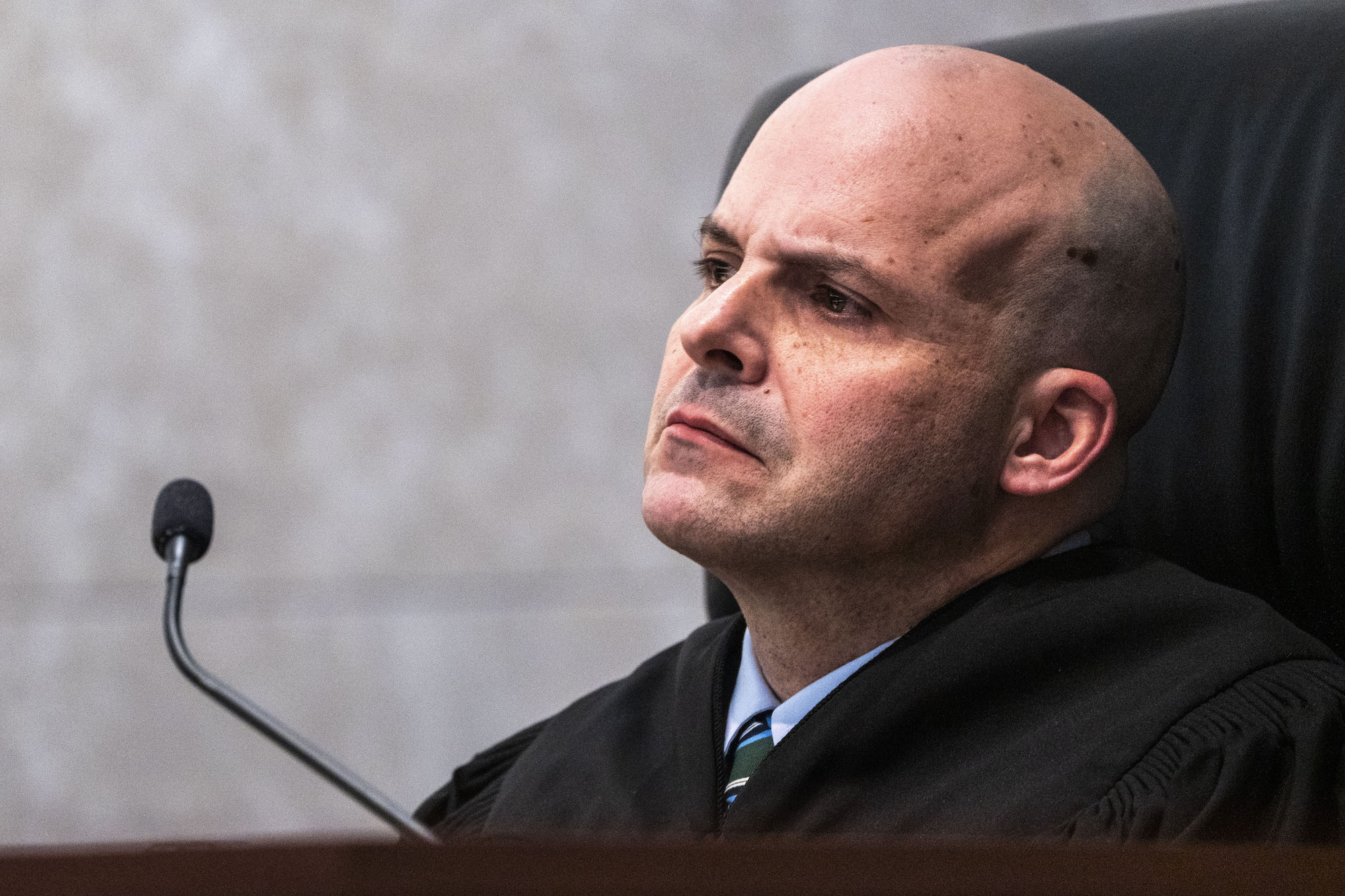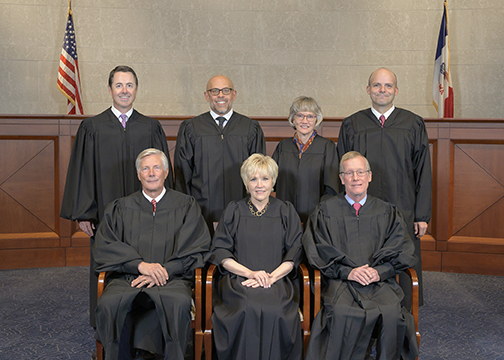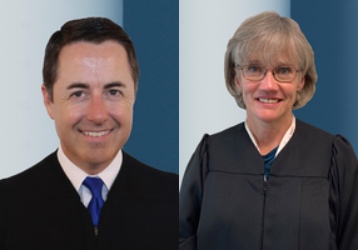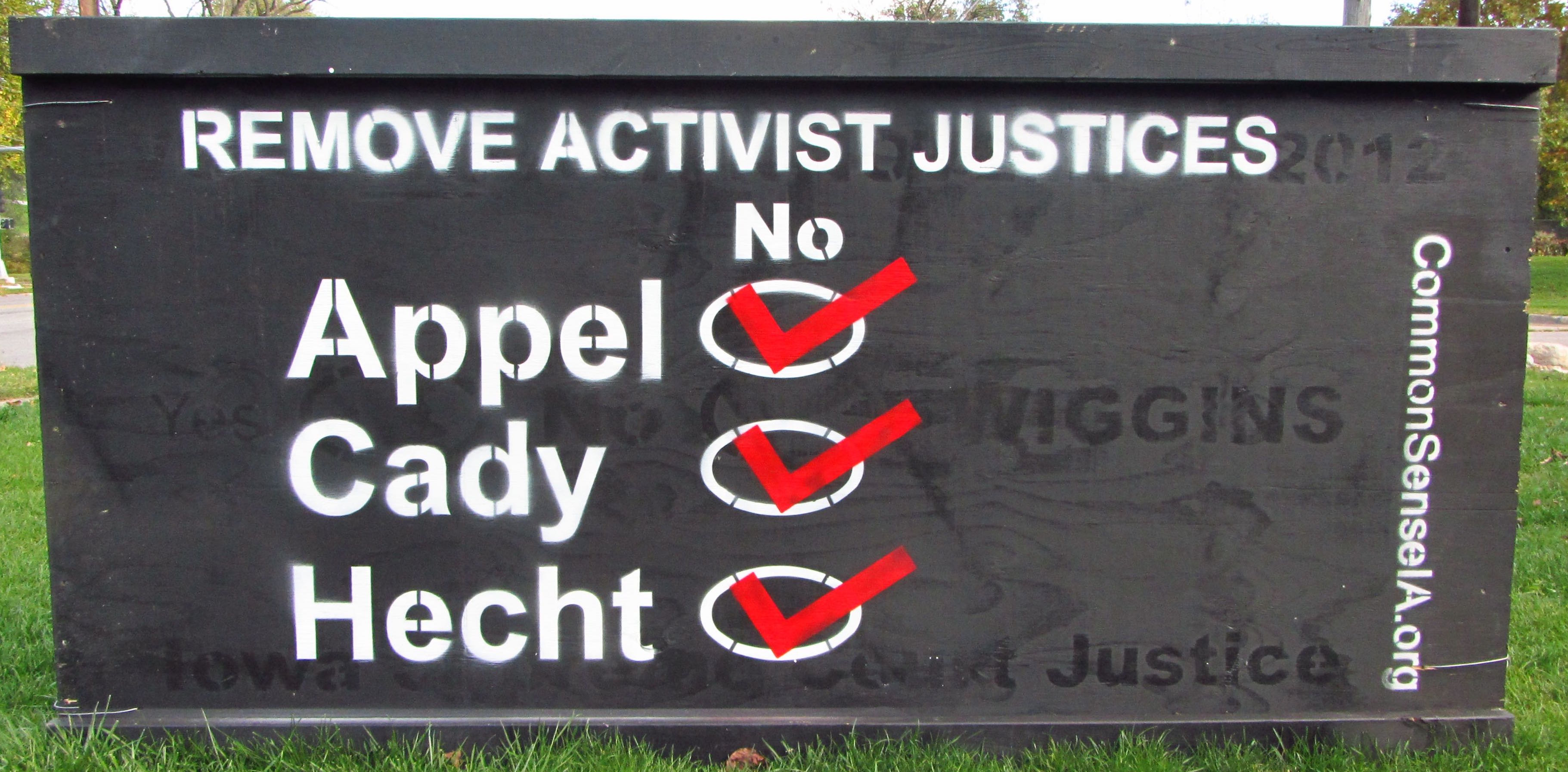Bob Vander Plaats announced at a press conference today that he will not run for governor as an independent but will lead a public campaign against retaining the three Iowa Supreme Court justices whose names are on the ballot this November. Vander Plaats didn’t say who will fund the campaign, but promised more details on his “grassroots” effort next week. James Lynch reported yesterday that the Republican Governors Association will fund Vander Plaats’ crusade, which RGA officials consider “a model to be duplicated in other states.”
It’s been obvious for weeks that Vander Plaats wasn’t planning an independent bid for governor. The only question was what kind of face-saving deal would be struck between the bitter Republican primary rivals. The rumor mill suggested Vander Plaats might endorse Branstad in exchange for a promised future job. Instead, we have a different truce: Vander Plaats formally stands true to his principles by not endorsing Branstad. In return, the RGA (Branstad’s largest campaign donor by far) will pay for Vander Plaats’ revenge mission against Iowa judges.
Branstad has avoided publicly urging Iowans to vote against retaining the Supreme Court justices, and he didn’t have the guts today to take a stand for or against unseating them over a political dispute. In a written statement, Branstad said, “This is an issue on which Bob has often spoke with great passion and I understand his desire to pursue this path.”
How different from the Branstad of May 2009, who said “I do respect the existence of the separation of powers” when asked whether he regretted appointing two of the current justices, including Mark Cady, author of the Varnum v Brien decision.
The old Branstad wasn’t planning to run for governor again. The new Branstad doesn’t mind exploiting resentment over same-sex marriage for his own political gain. If that ends the careers of three good judges while elevating demagogues who don’t understand judicial review, so be it. Branstad appointee and Chief Justice Marsha Ternus has said this year’s retention elections will test Iowans’ commitment to an impartial judiciary. Branstad won’t join the right side in this fight.
On the contrary, Branstad has endorsed changing Iowa’s highly-regarded merit-based system for selecting judges. He has an interest in creating vacancies he could fill if elected governor, and he would rather pander to the religious right than allow judicial selection commissions to keep doing the job they’ve been doing for almost four decades. Some Iowa Republicans have advocated bringing back judicial elections or extremely stupid new restrictions on judicial deliberations. Branstad should know better than to play with fire on this issue.
Iowa House and Senate Republicans are probably overjoyed by today’s news. Vander Plaats will be working to turn out social conservatives who might not be thrilled with the party’s nominee for governor. That has to help GOP candidates in some of the battleground legislative districts. On the other hand, moderates may be turned off by the campaign against the judges. A Des Moines Register poll of likely Iowa Republican primary voters taken in June by Selzer and Associates found that 35 percent of respondents said some Iowans had “overreacted” to the gay marriage issue. The same survey found that 45 percent of likely Republican primary voters were against voting to remove Supreme Court judges because of their decision on marriage.
I’m concerned about the retention elections, because the judges are unable to campaign on their own behalf. Those who support judicial independence, such as the State Bar Association, are unlikely to match spending against the judges by conservative groups and the Republican Governors Association. Fortunately, Governor Chet Culver made his position loud and clear today:
“I support Iowa’s Supreme Court justices and more importantly, I support our judicial nomination and appointment process as it stands today.
“Iowa is known for having the fairest judge selection system in the country. We oppose efforts to make choosing our judges more political, more ideological.
“Terry Branstad and his running mate Kim Reynolds have made it clear that they want to change our system. Branstad has gone so far as to highlight Reynolds’s support for changing the state’s constitution, allowing the governor to reject all nominees sent by the judicial nominating committee, requiring the committee to send names again and again until the governor finds an appointee that supports a certain political agenda.
“This campaign is about the future of our state and about choosing to move forward, instead of backwards. The best way to do that is not to focus on ideological battles but to bring Iowans together by investing in our future to create jobs, continue our national leadership in renewable energy and build 21st Century schools.”
John Deeth seems optimistic that the Vander Plaats crusade will fail. He makes a good point today:
Just for the record, here’s how the math usually works out on these things: the judges almost always win [retention] by an 80%-20% margin, with 40% or so of voters just skipping the contests entirely. I don’t see BVP swaying a typical independent voter. If he has any impact it’s on the margins, lowering that undervote percentage.
In [the] 1992 ERA vote, I learned a tough but basic lesson: Loudly reminding your people to vote Yes in an otherwise low-profile race simultaneously reminds the other side to vote No. The polarity is reversed here but BVP faces the same dilemma.
In 2004, activists on the religious right “mounted an unsuccessful campaign to oust Woodbury County District Court Judge Jeffrey Neary in 2004 based on Neary’s decision to grant a divorce to two lesbians who had entered into a civil union in Vermont.” Here’s hoping Vander Plaats fails too.
Share any relevant thoughts in this thread. Do you think Branstad can get by with weasel wording on the retention vote for the rest of the campaign? Or will he be forced later to come out explicitly for or against keeping Justices Ternus, Michael Streit and David Baker on the high court?
UPDATE: A statement from the American Judicature Society is after the jump. Iowa’s judiciary has been recognized as among the best in the country.
AUGUST 11 UPDATE: How cowardly is Terry Branstad?
“This is a ballot issue, and Gov. Branstad believes this is an issue on which people need to decide for themselves,” spokesman Tim Albrecht said today. “He respects the secret ballot and believes people should vote their conscience.”
Continue Reading...












